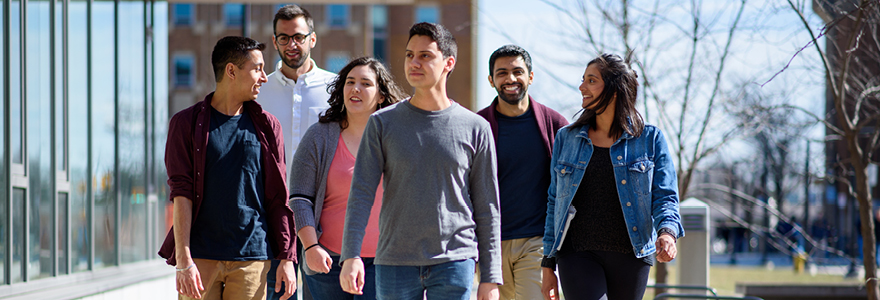Feature: Medical training leaves a lasting impact in Windsor
By Crystal Mackay, MA’05
The arrival of the Schulich Medicine Windsor Campus in 2009 has been life-changing for people in the community there.
“The influence of the Windsor Campus was like a trigger at a time when the world, our world here, was pretty desperate. There is a lot of civic pride now in Windsor and I share that all the time. I’m proud to be somebody who has been involved with this medical school coming,” commented one community member in Windsor, as part of a new research publication demonstrating the positive impact the Windsor Campus has had on the Southwestern Ontario community.
Schulich Medicine & Dentistry’s Windsor campus is home to 150 medical students in all four years of training, as well as residents working alongside local physician mentors in the city.
Leading up to the tenth anniversary of the Windsor Campus, researchers at the School wanted to evaluate the impact that the medical campus has had on health, community and socioeconomic challenges, and found overwhelmingly positive results. The study was published in the Canadian Medical Education Journal.
Research participants represented a wide range of sectors in the Windsor region including health, education, business, community and government. The themes that emerged from the research study were that community members felt that having medical students and residents from Schulich Medicine & Dentistry training in their city improved health care, enhanced community reputation and stimulated community development.
“Prior to the establishment of the Schulich Medicine & Dentistry Windsor Campus, Windsor was coming off of the economic downturn in 2008, which was a very difficult time for the city,” said Dr. Gerry Cooper, lead author on the study and former Associate Dean of the Windsor Campus. “The community members that we interviewed for this study told us that the arrival of the news that there was going to be a medical campus here really gave people hope and a reason to feel positive about what the future might look like.”
Facing chronic physician shortages and a shaky socioeconomic situation, the community had high hopes that bringing medical education to the city would help to address some of those challenges. The researchers say the community felt that in the past ten years since the medical campus was established, health care has been improved, the physician shortage has been addressed and that the campus has been a stimulus for economic activities in the community.
“One of the biggest success stories has been recruiting family doctors to stay in Windsor-Essex,” said Dr. Larry Jacobs, Associate Dean of the Windsor Campus and co-author on the paper. “Nearly 80 per cent of graduates from our family medicine residency program, stay to practise here.”
Almost every participant in the research study commented on how the Campus was aligned with attracting and retaining physicians to the city, both those who had trained in Windsor and those who had trained elsewhere but had a desire to be involved in medical education, mentorship and teaching.
In many regions across North America, medical schools are reaching out to underserved communities through the establishment of regional medical campuses. The authors note in the study that just under 40 per cent of medical schools in North America now have at least one regional medical campus. Many of these campuses are located in rural and remote areas, making this study is one of the first of its kind to evaluate the impact of a regional medical campus in an urban centre.
“Much of what has been learned about these campuses has been highly influenced by geographic and cultural context of rural and remote communities, and we are just beginning to fully appreciate their impact in urban communities,” said Cooper. “We wanted to be able to add to the body of literature because it is important to learn from our experiences and pass that knowledge on to other schools who may be looking to do similar things.”










